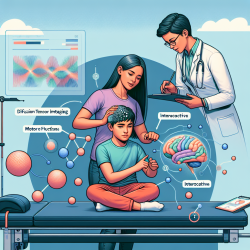The advent of electronic health records (EHR) has paved the way for big data to drive the next frontier in healthcare improvement. However, harnessing the power of data comes with multiple challenges. The Learning Health System (LHS) has emerged as a promising model to overcome these barriers and drive healthcare improvements.
A recent systematic review titled "Learning health systems using data to drive healthcare improvement and impact: a systematic review" by Enticott et al. (2021) provides valuable insights into the effectiveness of LHS. This blog will explore how practitioners can implement the outcomes of this research to enhance their skills and improve healthcare delivery.
Key Findings from the Systematic Review
The review identified 43 studies across 23 LHS environments, highlighting the global impact of LHS in various settings. Key benefits of LHS include:
- Enhanced patient self-management and engagement
- Improved evidence-based clinician care
- Optimized clinical service and organizational performance
- Increased research and evidence generation
Implementing LHS in Your Practice
To effectively implement LHS, practitioners should focus on the following core components:
1. Strong Partnerships
Building strong partnerships across stakeholders, including clinicians, researchers, and community members, is crucial. Collaborative efforts ensure that relevant issues are addressed and solutions are co-created.
2. Shared Vision and Governance
Developing a shared vision and establishing clear governance structures help align efforts and ensure that all stakeholders are working towards common goals.
3. Systems and Processes for Continuous Improvement
Implementing systems and processes that support iterative improvement is essential. This includes regular data collection, analysis, and feedback loops to inform clinical decision-making and practice adjustments.
4. Longitudinal Benchmarking and Patient Tracking
Utilizing tools for longitudinal benchmarking and patient tracking can provide valuable insights into patient outcomes and service performance. This enables practitioners to identify areas for improvement and measure the impact of interventions.
Encouraging Further Research
While the systematic review provides a robust foundation, ongoing research is needed to refine LHS models and explore their applicability in different contexts. Practitioners are encouraged to engage in research activities, share their findings, and contribute to the growing body of evidence on LHS.
By adopting the LHS approach, practitioners can leverage data to drive continuous healthcare improvement, ultimately leading to better patient outcomes and more efficient healthcare systems.
To read the original research paper, please follow this link: Learning health systems using data to drive healthcare improvement and impact: a systematic review










